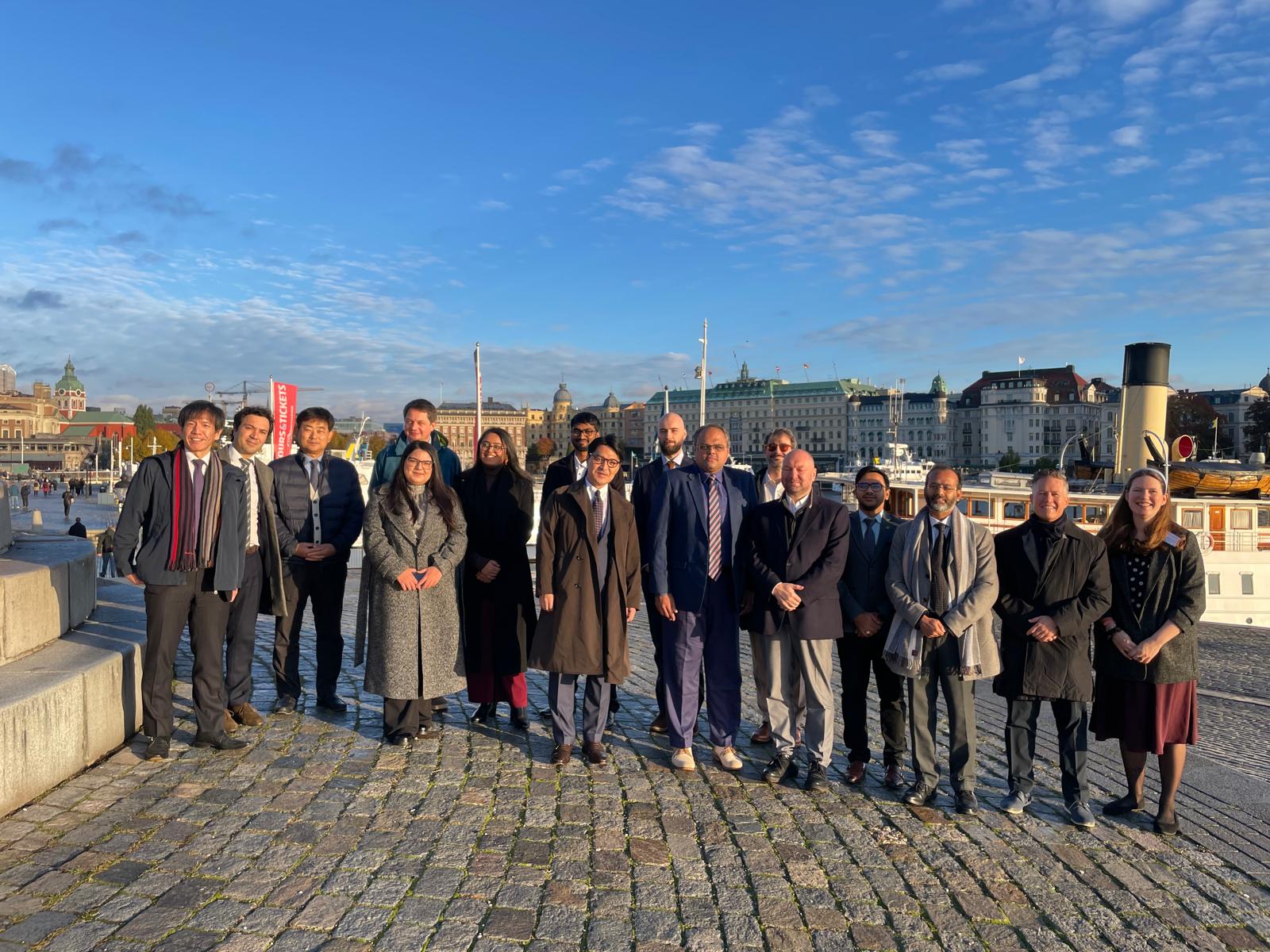On October 17, 2024, ORCA Director Eerishika Pankaj and Senior Research Associate Mr. Rahul Karan Reddy represented the Organisation for Research on China and Asia (ORCA) at the inaugural Stockholm Himalaya Forum, organized by the Stockholm Centre for South Asian and Indo-Pacific Affairs (SCSA-IPA) at the Institute for Security and Development Policy (ISDP). Held at the historic Sjöfartshuset venue in Stockholm, the forum gathered experts from India, Europe, East Asia, and the US to address urgent environmental and geopolitical issues shaping the Himalayan region.
Under the theme “Mapping China’s Himalayan Hustle,” the forum addressed the implications of China’s expanding influence in the Himalayas, particularly through infrastructure development, military strategies, and diplomatic engagements that are reshaping the regional landscape. Opening the event, ISDP Executive Director Dr. Niklas Swanstrom emphasized the need for strategic engagement and collaboration, especially in light of China’s neo-revisionist ambitions. SCSA-IPA Head Dr. Jagannath Panda welcomed participants, setting the stage for a critical dialogue on China’s influence and the role of regional alliances.
In a panel titled “China's Infrastructure Planning, Military Muscle & the Himalaya Game Plan,” ORCA Senior Research Associate Rahul Karan Reddy provided analysis on China’s strategies to cultivate dependencies within South Asia through its infrastructure planning and military presence. Moderated by Mr. Richard Ghiasy, the panel included insights from Dr. Antonina Luszczykiewicz-Mendis, Dr. Jingdong Yuan, and Dr. Brendon Cannon, each examining the broader regional impact of China’s strategic initiatives.
ORCA Director Eerishika Pankaj moderated the forum’s final session, which focused on China’s strategic expansion through hydropower and infrastructure projects in the Himalayas. This discussion highlighted the shared concerns about the long-term implications of China’s initiatives, with panelists advocating for strengthened collaboration between India, the European Union, Japan, and Nordic countries. There was consensus on the need to counter China’s influence through initiatives like the Global Gateway and satellite cooperation, as well as through diplomatic partnerships with nations such as Nepal, Bhutan, and Myanmar.
The forum facilitated a robust exchange of insights on the broader ramifications of China’s regional ambitions, highlighting how growing tensions and strategic competition in Asia impact the Himalayas. Media coverage of the event captured these key takeaways and the call for trilateral cooperation to address the shifting geopolitical landscape.


